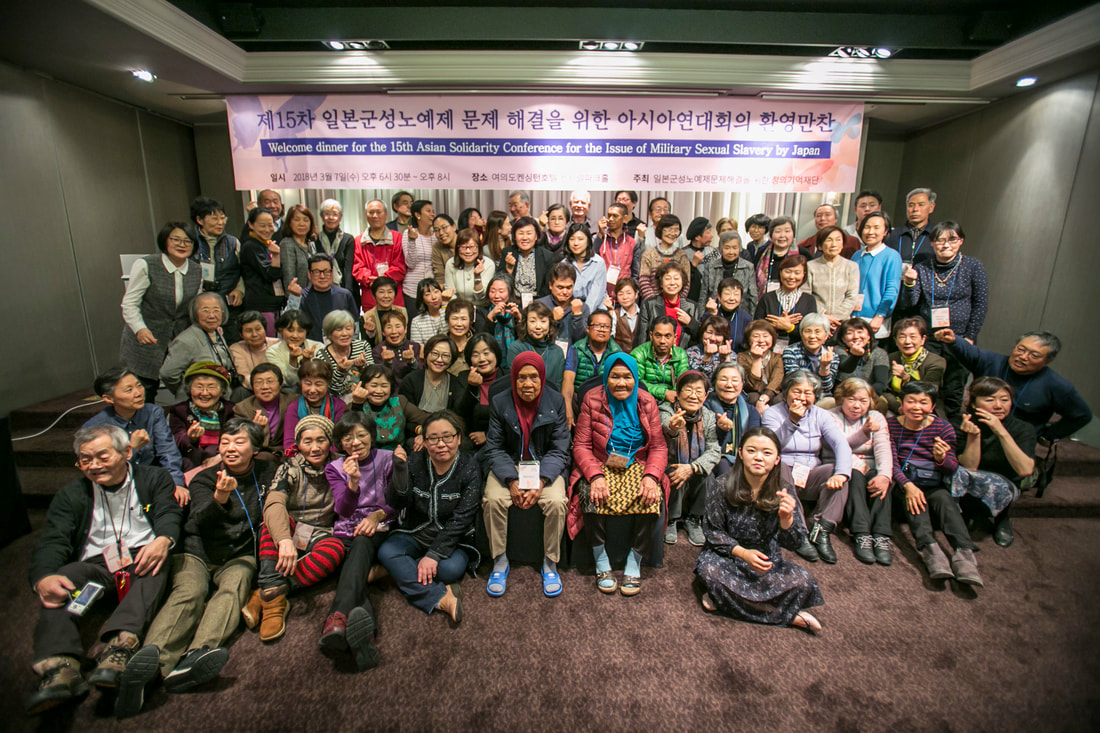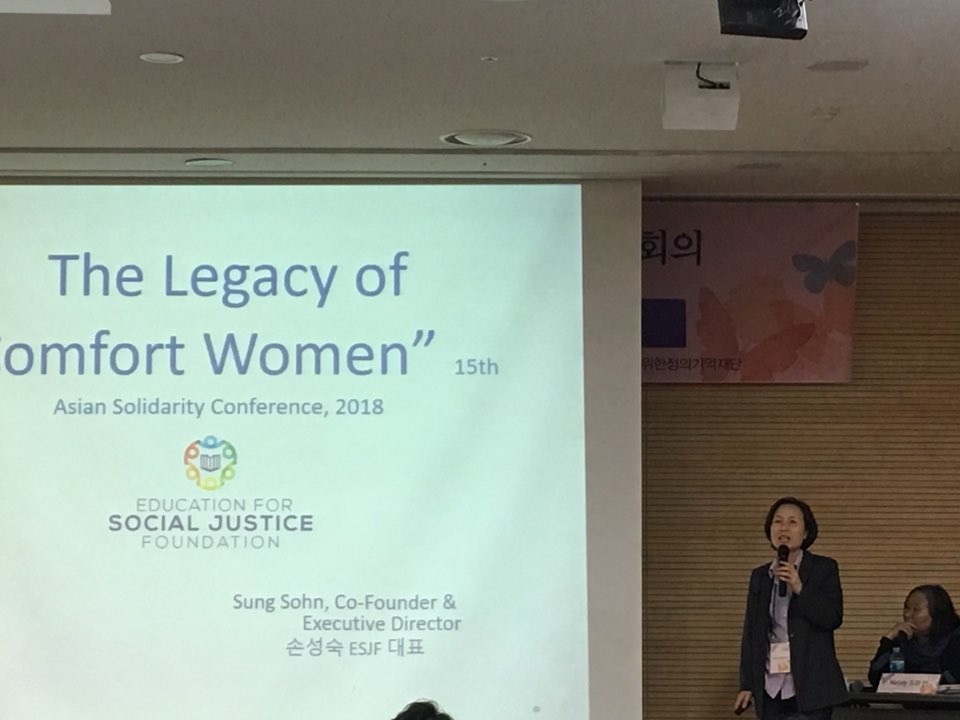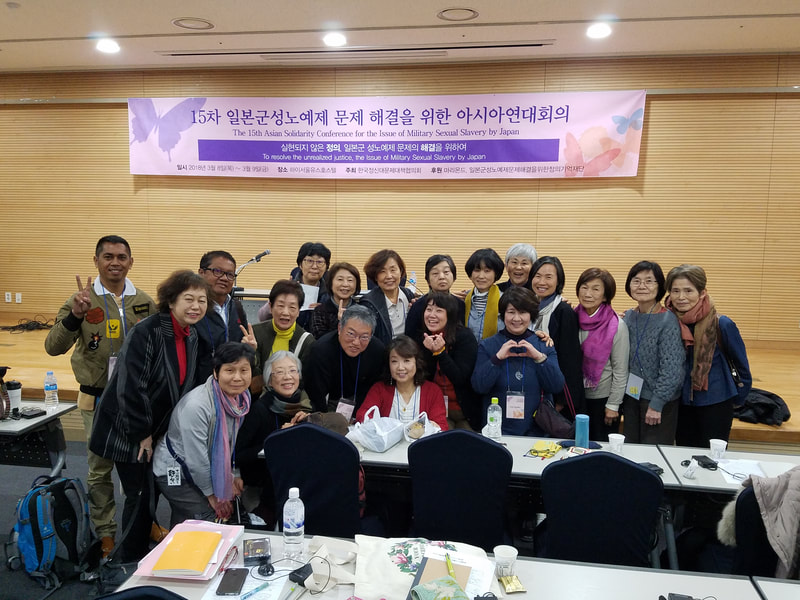|
The 15th Asian Solidarity Conference held in Seoul, South Korea from March 7 to March 10, 2018, was a resounding success. The conference attracted around 200 attendees and representatives from 11 different countries – China, the Philippines, Indonesia, Japan, East-Timor, Taiwan, Australia, New Zealand, Germany, the US, and Korea.
Attendees discussed how to address unresolved the “comfort women” issues. The conference kicked off with the testimonies from two survivors from Indonesia (Nuraini and Jaherang), one from China (Chen Liancun), and one from Korea (Gil Won-Ok). The conference was hosted by the Korean Council for the Women Drafted for Military Sexual Slavery by Japan (Jung Dae Hyup) for the second year in a row. This year, Jung Dae Hyup invited two organizations from the US – Education Social Justice Foundation (ESJF) and LA Nabi (meaning “butterfly”). The attendees listened attentively as Sung Sohn, ESFJ President, described how San Francisco remembers and honors “comfort women” survivors through education and memorial installation. ESJF’s presentation focused specifically on the historical context for educating students about “comfort women” history in San Francisco and the rest of California. Sohn discussed the background of the San Francisco memorial installation and ended the presentation with a black and white photo of Eric Mar and his grandmother. She explained that Eric’s grandmother told him about the Pacific atrocities and that her stories inspired him to lead the installation of the “comfort women” memorial in San Francisco many years later. The attendees LOVED the presentation! In fact, after Sohn’s lecture, many attendees commented that the 20-minute allotment for presenters felt too short, that they wanted to hear more and that her presentation needed a full day. On Friday morning, March 9, conference attendees examined, modified, and approved a joint resolution that was drafted the previous day. The joint resolution detailed how Japan should address “comfort women” issues. In the afternoon, the attendees had a Women’s Peace March from the Duksu Palace to the Japanese Embassy to deliver the resolution from the conference. The City of Seoul blocked the streets and provided police protection for us. Unfortunately, unlike last year, the Japanese Embassy refused to accept the joint resolution. Despite the Japanese Embassy’s unreasonable behavior, all attendees enjoyed the march. The process of collectively drafting the resolution and delivering it to the Japanese Embassy was very meaningful in itself. Additionally, several teenagers who were observing the march decided to join spontaneously.
1 Comment
Leave a Reply. |
CategoriesCategories |
Proudly powered by Weebly




 RSS Feed
RSS Feed